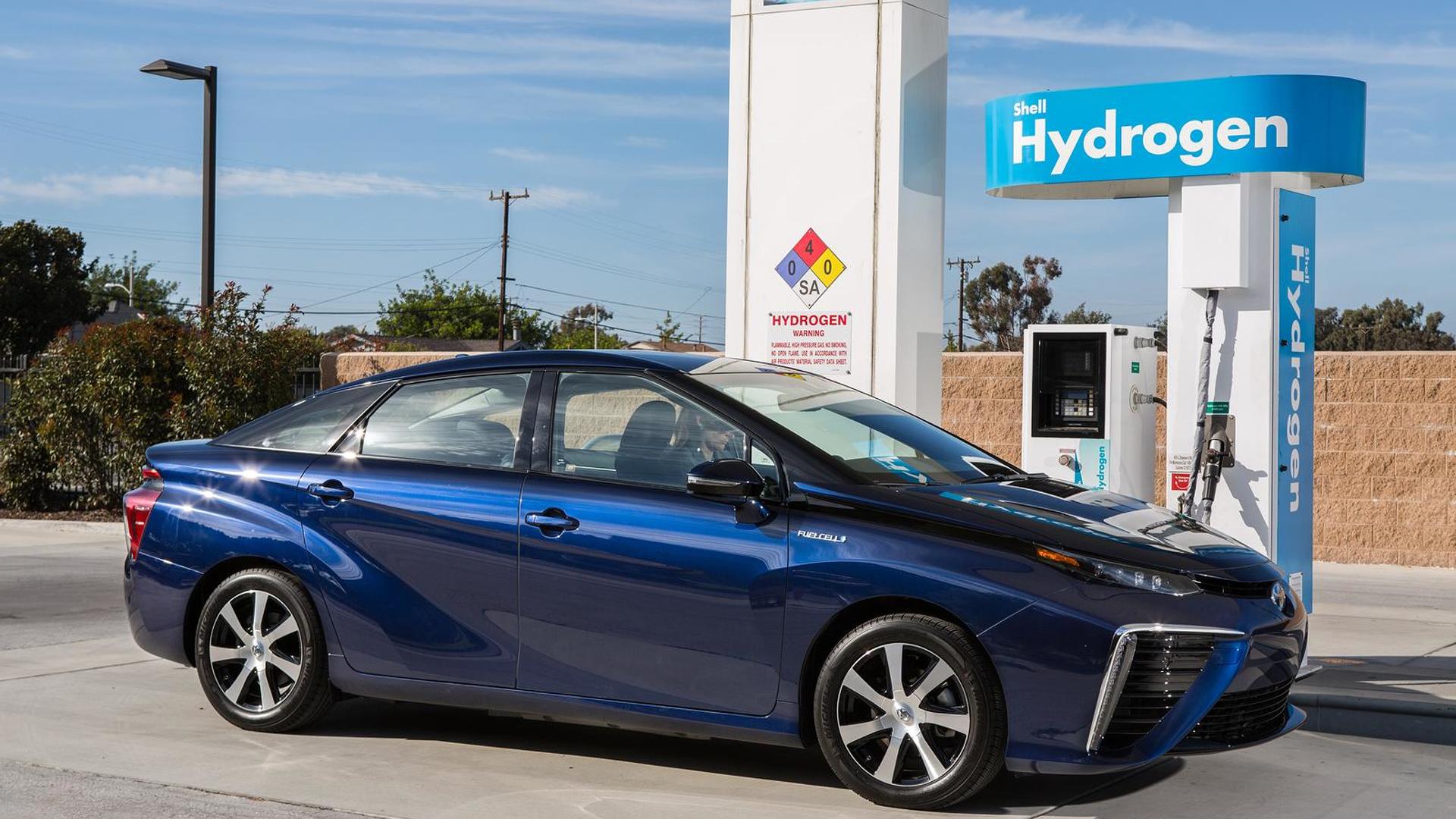

Toyota has been one of the biggest proponents of hydrogen fuel cell cars in the automotive realm. And despite problems with developing fueling infrastructure and promising new battery technology, the Japanese automaker is sticking with them.
Toyota announced plans to develop a long-range battery-electric car last year, but the automaker won’t move away from fuel cells, executive vice president Didier Leroy said in an interview with Reuters at the 2017 Tokyo Motor Show. At the same time, Leroy said Toyota is developing solid-state battery technology that could be a “game changer” for electric cars.
Since its launch in Japan in 2015, the Toyota Mirai fuel cell sedan has sold in relatively small numbers, and Toyota has faced difficulties ensuring there are enough hydrogen stations to keep drivers on the road. California remains the only U.S. market for the Mirai (as well as the Hyundai Tucson Fuel Cell and Honda Clarity Fuel Cell) because it’s the only state with a sufficient number of H2 fueling stations.
Toyota still needs to produce large numbers of zero-emission vehicles to meet stricter global emissions standards, which might explain its recent interest in battery-electric cars. After years of badmouthing them, Toyota confirmed plans for a long-range electric car last year, with a target launch date sometime in the next decade. The automaker claims to have made significant advances in battery technology. In his Reuters interview, Leroy mentioned solid-state batteries, which replace the liquid electrolyte used in conventional batteries with a solid material. Proponents of solid-state batteries claim this design can increase energy density, allowing more electricity to be stored in a given space.
But solid-state batteries haven’t been used successfully in a production car, and Toyota may be too entrenched in fuel cells to back out now. In Tokyo, the automaker unveiled the Fine-Comfort Ride fuel cell concept, and a fuel cell bus called the Sora. The bus will be used in Tokyo during the 2020 Summer Olympics.
For what it’s worth, the Japanese government is also very enthusiastic about fuel cells. Prime Minister Shinzo Abe has discussed a “hydrogen society” where fuel cells are used not only to power vehicles, but also as a stationary power source not unlike the energy-storage battery packs currently being promoted by Tesla and others.